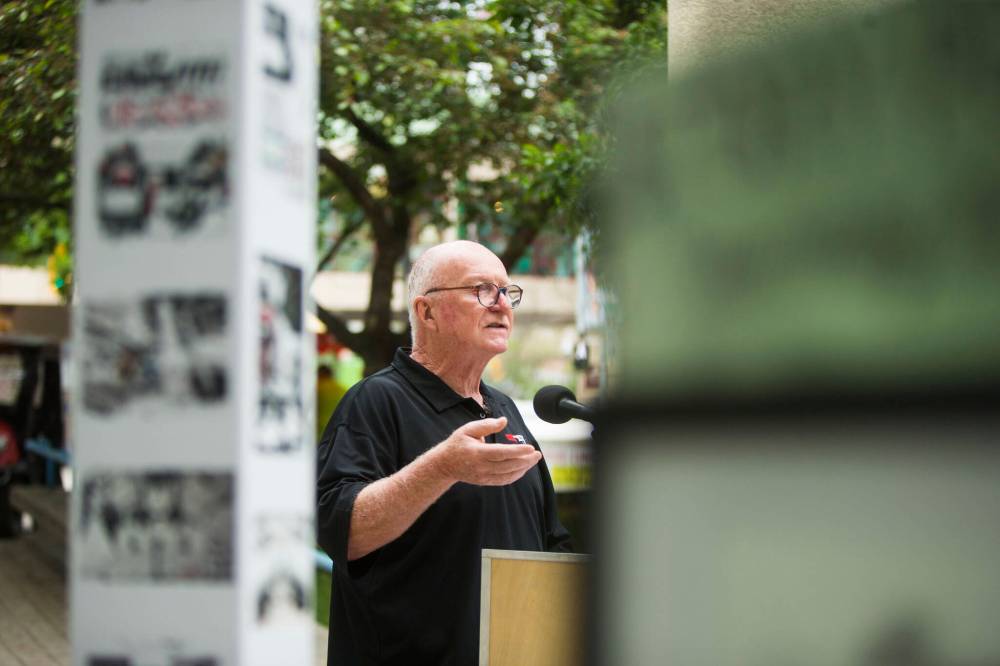Advocates demand streamlined help for homeless, more money
Advertisement
Read this article for free:
or
Already have an account? Log in here »
To continue reading, please subscribe:
Monthly Digital Subscription
$0 for the first 4 weeks*
- Enjoy unlimited reading on winnipegfreepress.com
- Read the E-Edition, our digital replica newspaper
- Access News Break, our award-winning app
- Play interactive puzzles
*No charge for 4 weeks then price increases to the regular rate of $19.00 plus GST every four weeks. Offer available to new and qualified returning subscribers only. Cancel any time.
Monthly Digital Subscription
$4.75/week*
- Enjoy unlimited reading on winnipegfreepress.com
- Read the E-Edition, our digital replica newspaper
- Access News Break, our award-winning app
- Play interactive puzzles
*Billed as $19 plus GST every four weeks. Cancel any time.
To continue reading, please subscribe:
Add Free Press access to your Brandon Sun subscription for only an additional
$1 for the first 4 weeks*
*Your next subscription payment will increase by $1.00 and you will be charged $16.99 plus GST for four weeks. After four weeks, your payment will increase to $23.99 plus GST every four weeks.
Read unlimited articles for free today:
or
Already have an account? Log in here »
Hey there, time traveller!
This article was published 25/03/2022 (1360 days ago), so information in it may no longer be current.
Organizations that help the homeless are waiting anxiously for provincial action after delivering a unified call for change to the Progressive Conservative government.
A 17-page report that summarizes feedback provided to the government by more than 300 people who work in the homelessness sector — and more than seven dozen people who have been without a home — was released Friday.
Social housing, harm reduction services, welfare and income assistance programs, and support for non-profit organizations were a few of the many areas in need of urgent improvement, as outlined by the report.

Red Road Lodge founder and chief executive officer Richard Walls said it appears the province accurately captured the litany of concerns shared during the three-month engagement process on a new homelessness strategy.
“The real test is, what action do they take in turning words into positive things?” Walls said.
A lack of co-ordination and information sharing between government departments — including justice, health and families — has consistently posed challenges for the transitional housing facility on Main Street in downtown Winnipeg, Walls said.
The bureaucratic breakdown could be as simple as not connecting a person released from jail with the social assistance services required to get a bed at Red Road Lodge, Walls said.
Other times, important information related to addictions recovery is not shared when new clients are referred to the supportive housing centre, he said.
“We’re all part of the same team — the hospitals, the nurses, the doctors, the specialists — and right now it’s too disjointed from what I can see,” Walls said, noting the province is best positioned to streamline information sharing.
Provincial funding models have also stymied efforts to deliver housing and recovery services, Walls said.
“The province really funds us for heads in beds,” he said. “That’s not near good enough.”
Block and multi-year funding that would give service providers more authority to spend money on recurring programs and emerging needs would mean rapid access to housing and appropriate staffing to support healing and recovery, Walls said.
“Particularly not-for-profits like ourselves need that next piece,” Walls said.
All organizations across the province emphasized the need for new and improved social housing units and a major expansion of housing to meet demand, the report said.
Inadequate financial support was also identified as an issue across the sector, particularly related to individual income and rent assistance, shelter and outreach services, and non-profit operating grants.
“(Participants) stated that chronic underfunding and no cost-of-living increases have resulted in service reductions, inability to attract and retain staff, and increased staff burnout,” the report stated. “Service providers are unable to offer salaries that reflect the difficult and taxing nature of the work.
“… ongoing staff turnover negatively affects the quality of services and ability to sustain trusting relationships with participants. Inadequate funding forces service providers to focus on ‘putting out fires’ rather than preventative services,” the report noted.
North End Women’s Centre executive director Cynthia Drebot said now that consultations have concluded, she expects the provincial government to bring forward a strategy and a budget that addresses the concerns raised by service providers.
“There are many system breakdowns that were identified in the engagement sessions and ways that policies can be adjusted and changed in order not to put people into homelessness unnecessarily,” Drebot said.
She commended the province for engaging the sector and reaching out to people who have experienced homelessness, adding the chance to speak directly to those influencing policy and government spending was meaningful for clients at the women’s centre.
“It’s a big holistic approach that is needed,” Drebot said. “I hope that out of that will come new opportunities to tackle some of these challenges that we’re having, and are not going away.”
Families Minister Rochelle Squires said the province is committed to improving its approach to issues that affect unsheltered people.
danielle.dasilva@freepress.mb.ca

Our newsroom depends on a growing audience of readers to power our journalism. If you are not a paid reader, please consider becoming a subscriber.
Our newsroom depends on its audience of readers to power our journalism. Thank you for your support.

